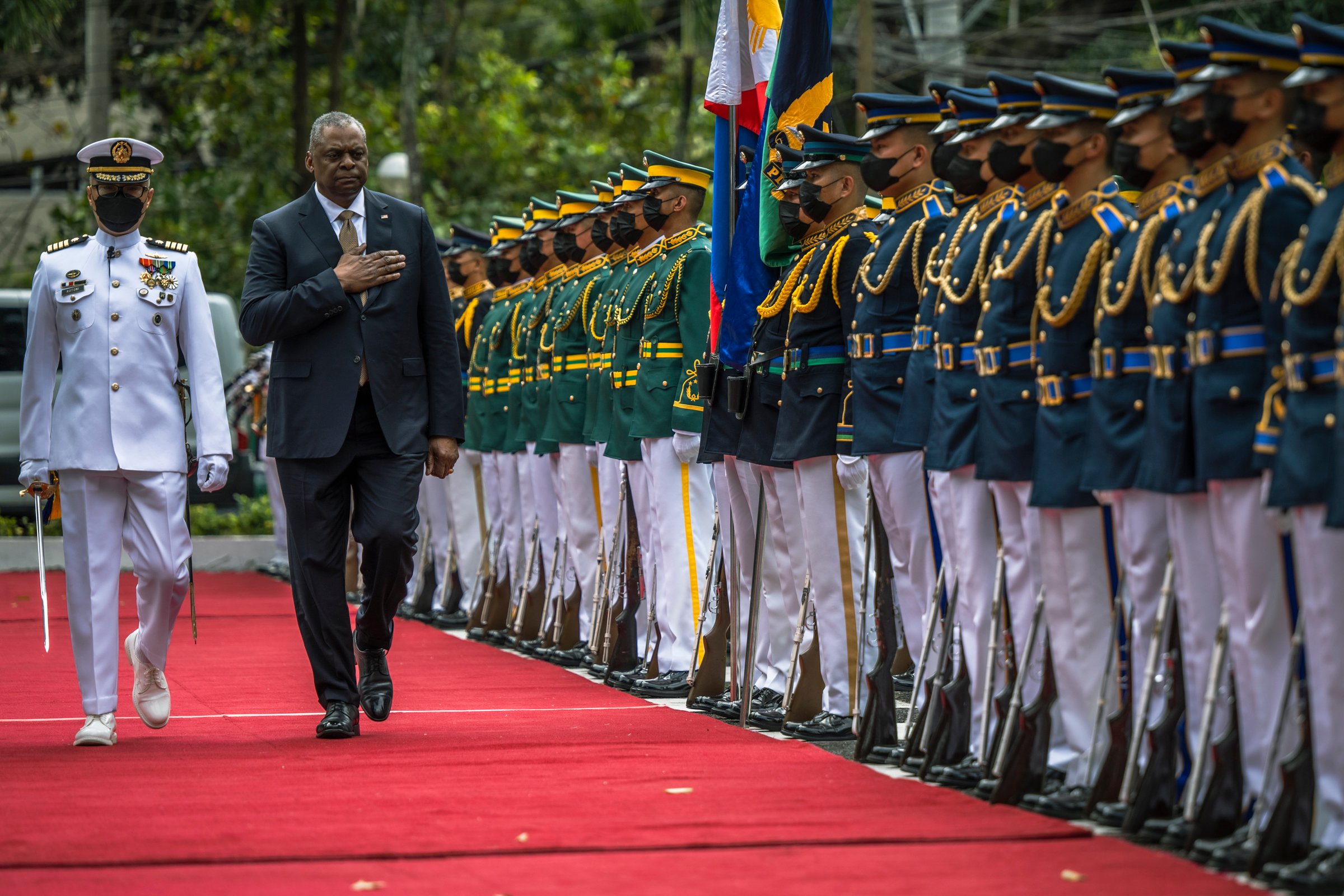
MANILA – The United States and the Philippines have designated four additional bases for U.S. troops to operate from as both countries agreed to accelerate the full implementation of the Enhanced Defense Cooperation Agreement (EDCA) that will house American troops and their equipment in Philippine military camps located in strategic areas of the country.
The new sites to base U.S. forces and their equipment were announced on Thursday while U.S. Defense Secretary Lloyd Austin was in the Philippines as part of a Western Pacific trip. He held meetings with officials, including President Ferdinand Marcos Jr., Defense Secretary Carlito Galvez Jr. and Foreign Affairs Secretary Enrique Manalo.
“The addition of these new EDCA locations will allow more rapid support for humanitarian and climate-related disasters in the Philippines, and respond to other shared challenges, both the U.S. and the Philippines said in a joint statement.
“The EDCA is a key pillar of the US-Philippines alliance, which supports combined training, exercises, and interoperability between our forces. Expansion of the EDCA will make our alliance stronger and more resilient, and will accelerate the modernization of our combined military capabilities.”
During a press briefing held by Galvez and Austin, the U.S. defense secretary made it clear that the U.S. was “not seeking a permanent basing” in the Philippines through the EDCA, instead, Washington was looking at access and the opportunity for the U.S. to increase its training activities with the Philippines.
“It’s about having the ability to respond in a more collective fashion… so this is an opportunity to increase our effectiveness, increase interoperability,” Austin also said.
Although four additional sites have been designated, Galvez refused to identify their new locations, saying they still must consult with local officials who have jurisdiction over the sites.
Two months ago, the Philippine military disclosed that the U.S. has identified and asked for five additional locations for the EDCA – one site each in Palawan, Zambales and Isabela and two sites in Cagayan.
The designation of four additional locations will bring to the number of EDCA sites to nine. The agreement was signed by the U.S. and the Philippines in 2014, partly to counter China in the South China Sea and ensure the availability of American troops to assist the Philippines in responding to the effects of natural disasters
Previously, both countries have already designated five locations for the EDCA: the Antonio Bautista Air Base in Palawan, which is closest to the Kalayaan Island Group; Basa Air Base in Pampanga; Fort Magsaysay in Nueva Ecija, the country’s largest military camp; Benito Ebuen Air Base in Cebu in the Visayas and Lumbia Air Base in Cagayan de Oro City in Mindanao.
Before the press briefing, Galvez and Austin held a meeting wherein both leaders discussed how the U.S. and the Philippines could make their alliance more robust and stronger.
“We talked about enhancing our mutual defense posture and strengthening our commitments under our Mutual Defense Treaty,” Austin said.
“President Biden has made clear America’s commitment to the defense of the Philippines is iron clad, our alliance makes both of our democracies more secure and helps uphold a free and open Indo-Pacific,” he added.
As both countries have agreed to accelerate the full implementation of the 2014 agreement, Thursday’s statement said that the U.S. has already allocated more than $82 million for “infrastructure investments” at the existing five ECDA sites and these investments are “supporting economic growth and job creation in local Philippine communities.”
“The United States and the Philippines have committed to move quickly in agreeing to the necessary plans and investments for the new and existing EDCA locations,” the statement said.
The U.S. defense secretary reaffirmed the commitment, saying the “Mutual Defense Treaty applies to armed attacks on either of our armed forces, public vessels or aircraft anywhere in the South China sea or West Philippine Sea.”





